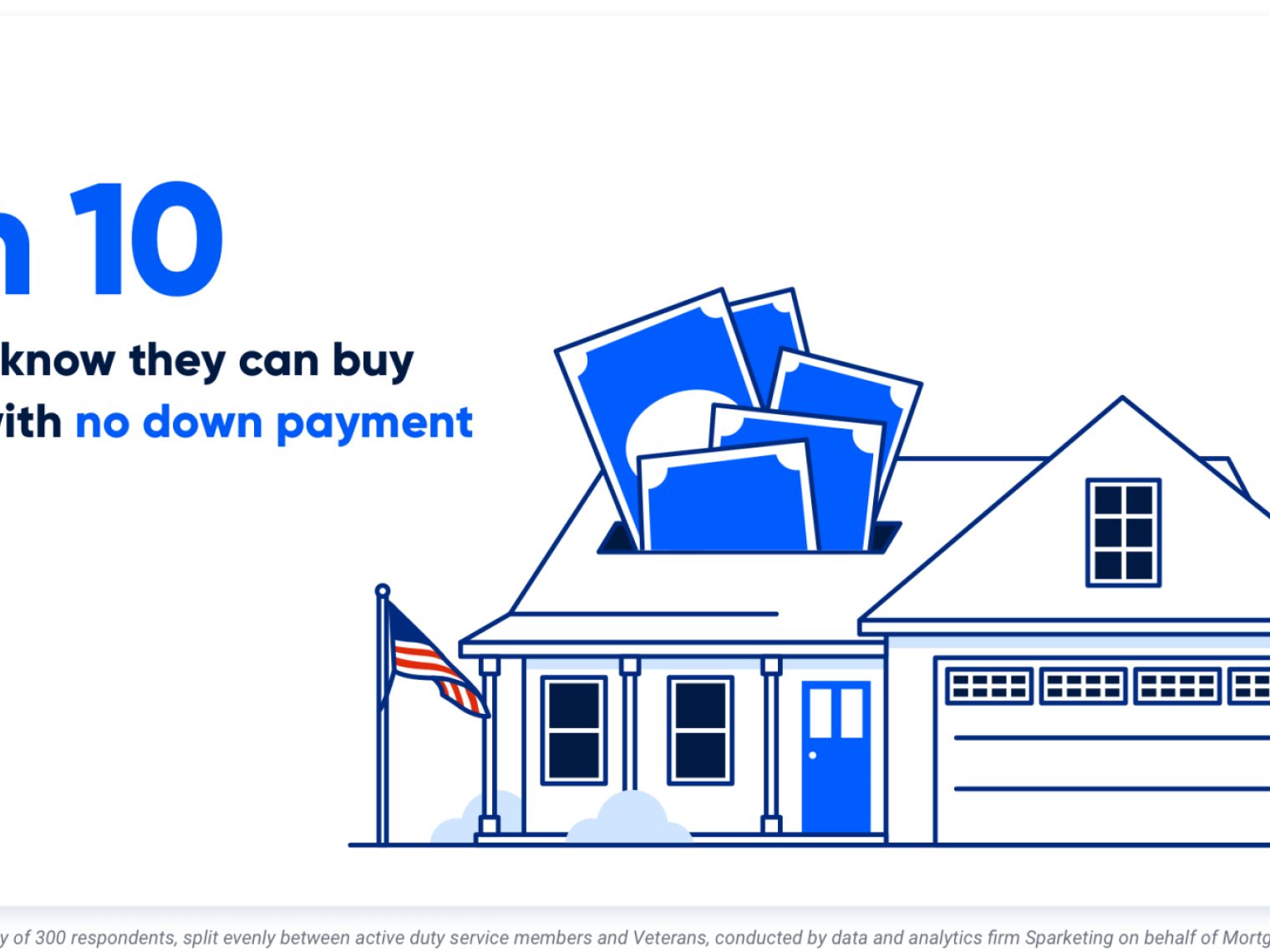Virtual tours are more critical than ever with open houses and in-person home tours on hold across much of the country because of the coronavirus. Here are five tips to help VA buyers get the most from remote showings during this unprecedented homebuying season.
Open houses and in-person home tours are on hold across much of the country because of the coronavirus. That’s made virtual home tours more important than ever.
While it’s tough to replace a true physical walk-through of a property, new technologies and tools are helping veterans get as close as possible during this challenging time. Thousands of VA buyers are still getting under contract every single week, thanks in part to the guidance and hard work of their boots on the ground – their real estate agent.
Every day, agents in communities nationwide put on protective gear and take their buyers on virtual tours through prospective properties. For the buyers who can’t be there, getting prepared for virtual showings ahead of time can make a huge difference.
Here are five tips to help VA buyers get the most from virtual home tours.
Tip 1: Find an Agent You Trust
This is good advice any time, but it’s especially important during this unprecedented homebuying season. You’re putting a lot of trust in this person, so look for real estate agents who really know the VA loan program, the local real estate market, and your wants and needs in a home.
If the agent is going to be your eyes and ears, you want to make sure they’ve got a clear and in-depth understanding of your priorities.
“It's extremely important in this ever-changing real estate landscape to have trusted full-time professionals advising you every step of the way,” said Neil Brooks, a Navy veteran and team lead at Brooks Residential Group in Scottsdale, Arizona. “Many buyers aren't aware of the fact that when they ‘hire’ a Realtor, the Realtor's fees are paid for by the Seller.”
VA-experienced agents can also save time by ensuring you look only at houses that are a good fit for the VA appraisal process.
Tip 2: Do Your Homework First
Read over the MLS listing for the property in detail and pay close attention to the photos.
Listings with more exterior photos than interior ones might mean the inside is dated or in need of improvements. Listing agents might use certain camera angles to make rooms look larger than they actually are, so compare photos with the dimensions from the MLS listing.
Some listings might have interactive, three-dimensional floor plans that you can review before deciding on a full remote tour. Even sketching out a floor plan on your own can help better demonstrate the relative size of a given space or property.
Duan Rockette tries to ensure his buyers can review the seller’s disclosure for a property before embarking on a virtual tour. These documents detail key information about past or present issues with the home.
“We’re always putting the veteran at the forefront while embracing the technology,” said Rockette, a retired Marine Corps veteran and managing broker at NP Dodge Real Estate in Omaha, Nebraska.
Tip 3: Don’t Forget the Neighborhood
For many VA buyers, you’re purchasing not just a house but part of a community. Depending on where you’re buying, the coronavirus has made it tougher to get to know some neighborhoods.
That’s another spot where technology can help close the gap.
“Go to the county website and Google Earth and do a preliminary ‘walk around the neighborhood,’” said Donna Roberts, managing broker at Donna Roberts Group in southwest Washington state. “Get a feel for the area, topography, schools and demographics prior to going to tour.”
You can also ask your agent to explore the neighborhood and stream live video or send photos. Veterans relocating to a community where they already have family can also lean on them for input and help, provided they feel comfortable venturing out.
“Mobile notaries, electronic signatures and remote signings are all part of our new technology-driven process,” Roberts said.
Tip 4: Put Your Agent to Work
When you’re ready to tour a home virtually, make sure you and your agent are on the same page. You’re still in the driver’s seat, even if you won’t be getting off the couch during your home search.
Have your agent show you every part of the property you want to see, from the obvious major elements like appliances and the roof to opening cabinets and windows. You’re relying on your agent’s senses, too, so ask about smells, sounds and how level the floors feel.
Don’t feel bad about asking your agent to return to a room or to take a closer look at a potential problem. That’s their job, and many agents are great at spotting issues that might need a home inspector’s attention down the road.
Make sure to record the walk through if possible, too. It’s always a good idea to take notes during home tours, and the recording allows you to revisit spaces and potential issues during your deliberation process.
Tip 5: Commit to a Home Inspection
Getting a home inspection is key for peace of mind, not just once you’re under contract but during the home search itself. Knowing a home inspection is on the horizon can help relieve stress if you won’t be able to physically tour a property before making an offer.
When you’re evaluating home inspection firms, ask about their remote and virtual options if you won’t be able to accompany the inspector at the property. Much like real estate agents, home inspectors in some parts of the country have turned to video conferencing to bring buyers along for the inspection.
For VA buyers, the appraisal is also a helpful backstop. The VA appraisal considers a property’s condition along with its value, which is meant to help veterans purchase homes that are safe, sound and sanitary. Unlike the home inspection, the appraisal is mandatory, but it’s also not as in depth as a home inspection.
It’s also important to remember that neither the home inspection nor the appraisal can guarantee a home is free of defects. Rely on your homebuying experts as much as possible when checking out homes.
Related Posts
-
 VA Loan Down Payment RequirementsVA loans have no down payment requirements as long as the Veteran has full entitlement, but only 3-in-10 Veterans know they can buy a home loan with zero down payment. Here’s what Veterans need to know about VA loan down payment requirements.
VA Loan Down Payment RequirementsVA loans have no down payment requirements as long as the Veteran has full entitlement, but only 3-in-10 Veterans know they can buy a home loan with zero down payment. Here’s what Veterans need to know about VA loan down payment requirements. -
 5 Most Common VA Loan Myths BustedVA loan myths confuse and deter many VA loan borrowers. Here we debunk 5 of the most common VA loan myths so that you can borrow with confidence.
5 Most Common VA Loan Myths BustedVA loan myths confuse and deter many VA loan borrowers. Here we debunk 5 of the most common VA loan myths so that you can borrow with confidence.


